
Feb 14, 2020
Every member of your family needs a dedicated dental professional who is specialized in handling the oral health needs of each age group. Regular checkups, proper hygiene, and professional cleanings all contribute to a healthy and attractive smile. Whether it’s the parents, kids, or grandparents, everyone should visit the family dentist.
Children:
Pediatric patients require special treatment based on their oral development as well as their emotional stages. Family dentists are familiar with the evolving needs of young patients, who grow from no teeth to baby teeth to permanent teeth. They teach children how to properly care for their teeth and gums, and advise on the do’s and don’ts related to diet and safety. The dentist and staff are also well-trained on keeping children happy and engaged while in the dental office. Family dentists can make kids feel comfortable and confident in the dentist’s chair so they’ll have a positive dental experience for life.
Adults:
With adulthood comes challenges such as increased risk for gum disease, tooth loss, decay that may require root canal treatment, cavities that need replacement, and more. Even with good oral hygiene, normal wear and tear on the mouth can cause issues. That’s why regular checkups are important to catch problems early, plus professional cleanings to combat the signs of age and environment on the teeth. Issues like heart disease or diabetes are also more likely during the adult years, and can impact your oral health.
Seniors:
Older adults require regular dental care for their unique needs. Family dentists offer dental implants or dentures for missing teeth, and are experienced in dealing with dry mouth and other problems common with seniors. After having a long relationship with their family dentist, seniors are able to continue that into their later years so that they have the best oral health possible.
Schedule your appointment at our Fall River dental office

Jan 3, 2020
Family dentists can do so much for you and your family. A family dentist is able to perform any other task another dentist can do, but they’re able to perform them on your entire family. The convenience of this service to each member of your family will save you time and trouble. Your family dentist obtains everyone’s complete dental histories, and gives the best treatment possible based on an experienced review of those records.
Because a family dentist recognizes that your time is very valuable, appointments can often be made in blocks so that services can be offered to each member of your family on the same day, near the same time. You can make one trip and be finished with your routine dental checkups, x-rays, cleanings and preventative care for six more months!
Family dental offices also offer cosmetic dentistry services like teeth whitening or porcelain veneers. Dental crowns, dental bridges, fillings and other bonding work can easily be accomplished there. A family dentist also offers root canal treatments, extractions or emergency care.
Your family dentist wants to be a friend of your family for life. Having a dentist who has seen your children’s teeth through their formative years and into adulthood is of huge benefit to your children. As long as your children remain in the area, they will never have to search for another dentist. They will have formed a trusting and comfortable bond with the family dentist, ensuring that good oral hygiene habits will continue into adulthood, as will routine preventative care.
Sedation dentistry is likely to be offered at your family dentist, especially to any patient with a phobia or other anxiety about dental appointments. Even younger patients can benefit from sedation dentistry, allowing them to calm their bodies and to comply with requests by the dentist, keeping everyone safe during treatment.
You are the priority to your family dentist. The relationship that is formed with you and your family is one that your family dentist wants to see last a lifetime.
Our dental office is located in Fall River

Feb 28, 2020
Dental crowns and bridges were originally made to fix terribly damaged or missing teeth. No matter how your teeth have been damaged, crown and bridge restorations can help to restore your beautiful smile.
Even one missing tooth can cause surrounding teeth to shift and create a crooked smile. Missing and broken teeth can also cause problems speaking and chewing. One of the best options for restoring function and improving the aesthetics of your smile are dental crowns and bridges.
Crowns are placed over a tooth to help restore form and function when a traditional filling is not sufficient to do the job. A bridge works to replace missing teeth. There are several options for the type of bridge that is placed, depending on your specific situation. Crowns and bridges can be made of natural looking tooth-colored material, metal, or some of both.
Crowns improve the look of your smile, improve the function of your teeth, and help restore your overall oral health. A crown can be used to repair and protect a tooth with old, broken-down fillings as well as to replace older, metal crowns. Crowns are also used to protect the existing tooth structure following root canal treatment.
Bridges are used to fill the space of missing teeth, to keep the remaining teeth from shifting and causing changes in the jaw and facial structure. Bridges are also used as an alternative to removable dentures. Bridges can be supported by either natural teeth or dental implants, and improve both the look and function of your smile.
If you are suffering from missing or damaged teeth, consult with your dental professional to find out more about how crowns and bridges can improve both the beauty and function of your smile.
We look forward to seeing you in our Fall River dental office

Sep 6, 2019
If you’ve been wearing dentures for a while, you may have some complaints. They might fit poorly and shift or click when you talk or eat. Poor fit can lead to discomfort and sores in the mouth that worsen over time, or they can collect food underneath them, leading to bad breath.
If this sounds familiar to you, there might be alternatives for you. One of the newest developments in dentures is the pairing of standard dentures with dental implants. The dental implants are placed directly into your jawbone, providing the kind of stability only previously offered by natural teeth. Dentures fixed in the mouth with dental implants become something new: hybrid dentures.
Dentures that utilize dental implants as their anchors are very stable. They enable denture wearers to enjoy foods previously denied them, such as crisp, healthy foods or chewy cuts of meat. Eliminating the food restrictions present for many denture wearers allows them to eat a wider variety of foods, helping to reduce the risk of poor nutrition and the poor health associated with it, including digestion difficulties.
Because of this increased stability, the denture itself can be made smaller. A standard denture covers the roof of the mouth completely, inhibiting the taste and texture of foods. A denture designed around dental implants, however, has an open roof and facilitates a greater enjoyment of foods of all kinds, as well as a more natural feel for your tongue.
Dental implants also stimulate bone by mimicking natural tooth roots. This stimulation allows the bone to continue to be strong and alive, whereas the bones of the face can begin to shrink once a tooth has been extracted. This bone shrinkage leads directly to poor denture fit. Dental implants used with dentures avoid this issue.
If you are a denture wearer and you’d like to see some changes in how your dentures fit, talk to your dentist to see how using dental implants can improve your denture experience.
If you live in the Fall River area contact us today
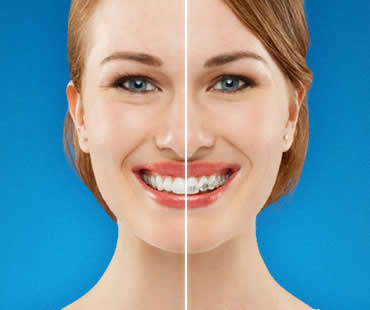
Jan 10, 2020
Let’s face it. When you talk about straightening teeth, images of middle school kids with mouths full of metal and colored bands come into your mind. As an adult, those images might give you nightmares if you imagine it for yourself. But what if you have crooked teeth or problematic bite issues? What are your teeth-straightening choices that won’t embarrass you? Invisalign is the answer and is often the right choice for adults seeking to straighten their teeth.
Invisalign is a system by which a series of clear plastic trays, or aligners, are worn for a minimum of 22 hours each day, gradually straightening your teeth without metal brackets or wires. As each tray completes its alignment, another tray is applied to continue your smile transformation.
The clear plastic aligners allow for discrete use for adults, especially in professional or interpersonal situations. It enables the wearer to function professionally without losing any kind of credibility because of negative perceptions of metal braces. You’ll eat with confidence on dates or at business dinners because the aligners are removed for eating meals. After rinsing your mouth with water, simply pop the aligner back in and allow your smile to straighten.
You’ll also take out the aligners each time you brush your teeth. This enables you to thoroughly clean your mouth and teeth and makes flossing a snap. Flossing with traditional braces takes a long time and can be difficult, even for adults. Choosing Invisalign as an adult allows you to have a healthier mouth and therefore fresher breath.
These and other benefits are possible with Invisalign. Visit your orthodontist to begin learning about all the advantages that Invisalign can offer you as an adult looking to have straighter teeth.
Schedule your appointment at our Fall River dental office
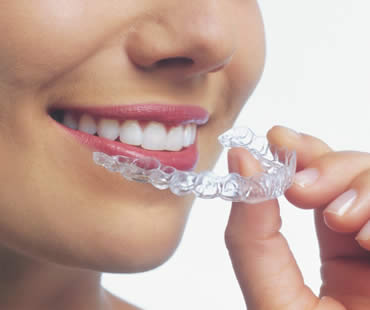
Nov 1, 2019
Does your child need braces, but isn’t sure about being a “metal mouth” for two or more years? Did your teen come to you and beg for some other option to traditional braces? Perhaps you’ve heard about Invisalign aligners but are wondering if they’ll work for your child. Invisalign is absolutely appropriate for your teen if all of his or her baby teeth have fallen out and adult teeth have erupted.
Invisalign provides the same results as traditional metal braces, but without the metal brackets. Concerns over eating with braces are removed with the Invisalign trays, as they come out for meals, leaving your teen free to eat any food he or she desires.
Invisalign utilizes clear plastic trays that allow the process of straightening your teen’s teeth to be less obvious and less obtrusive. Beginning with x-rays and molds, your orthodontist will make a series of trays, called aligners. These trays are worn most of the day, taken out only to eat or to be cleaned. The process of straightening happens gradually and comfortably.
It is essential during this time that the trays are worn as recommended by the orthodontist. Wearing them less than the recommended amount of time will result in slower correction, and has the potential to lengthen treatment. Have your teen continue with any established good oral hygiene habits. Brushing and flossing must continue on a regular basis, brushing twice a day at minimum and flossing before bedtime.
Being a teenager is full of difficulties, and it is during this time that teens are at their most self-conscious. Adding metal braces to this transition can make everything worse for your child, leaving him or her self-conscious about eating with friends or smiling, talking or laughing in public. Your teen’s gapped, misaligned or crowded teeth can be improved significantly with Invisalign trays. Talk to your orthodontist today to see how Invisalign can make a difference for your child.
Our dental office is located in Fall River
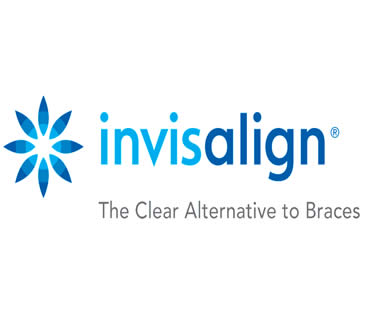
Jul 12, 2019
Being a teenager can be difficult, and being a teen whose smile could use some improvement can be even more difficult. If your teen suffers from gapped, crooked, crowded, or misaligned teeth, you may be looking into Invisalign with your teen’s orthodontist as a smile solution.
In the past, metal braces were the standard for teens, leading to “metal mouth” smiles and the worry that food is caught there during lunch or after snacks. Metal braces can lead to even more self-consciousness for your teen. Using Invisalign will lead to the same results as traditional metal braces. While metal braces use wires and brackets to straighten teeth, Invisalign uses clear plastic trays, allowing your teen’s process of tooth straightening to be less obvious.
The Invisalign process begins with impressions and x-rays, providing valuable information regarding the current condition of your teen’s teeth. The mold made from the impressions serves as the reference for creating the custom-made Invisalign trays. A series of trays are used, gradually altering the teeth, leading to a more comfortable straightening process.
Invisalign trays are removed before eating, eliminating the trepidation associated with eating in public with traditional metal braces. Because there is no hardware to dislodge, there are no food restrictions, and your teen may continue to enjoy whatever foods desired.
Your teen will need to have good oral hygiene habits. Flossing once a day and brushing after mealtimes or at least twice a day is best. Invisalign trays are removed prior to these activities, allowing for an ease of oral care not provided by traditional braces.
Be sure your teen wears the Invisalign trays as recommend by his or her orthodontist. In order to maximize Invisalign effectiveness, your teen must wear the trays at all times, except during mealtimes or when brushing or flossing.
Schedule your appointment at our Fall River dental office

Oct 11, 2019
It’s not uncommon for children to be afraid of going to the dentist. Let’s face it, many adults don’t like visiting the dentist either. However adults mainly don’t want to take the time or don’t want to hear the news that they aren’t taking good care of their teeth. It’s different with kids though, who often have a real fear of the dentist, equipment, and the unknown situation. If your child is one of those who experiences anxiety at the mention of the dentist, here are some things you can do to help ease those fears.
Use visual aids:
It is helpful for some children to watch a video or read a book that will help them become more familiar and comfortable with going to the dentist. Your local library or the internet both likely offer resources for this purpose, and bookstores have books and DVDs for purchase. These visual aids help kids know what to expect in visiting the dentist, and what their role is in the process.
Visit the office:
Take your child to the dentist’s office prior to your appointment so they can observe the office, meet the staff, and see the area and tools used for examinations. The staff may even give your child an explanation of the tools that dentists use for checkups. Your dentist wants children to feel comfortable and confident in getting dental treatment, so most offices do their best to help your child adjust.
Explain the importance:
Even though fear sometimes overtakes logic, it’s still important to explain to your child the reasons for seeing the dentist. Help them understand the benefits of checkups, and the oral health consequences that may occur by not caring for their teeth and getting regular checkups.
Our dental office is located in Fall River
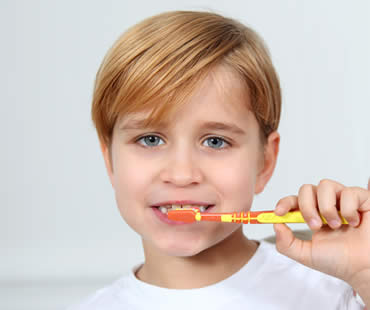
Jun 21, 2019
In many households, the bedtime routine is no fun. One of the trickiest parts for some parents is getting their kids to brush their teeth. However, it’s not a part of your child’s routine that should be skipped. To help make taking care of their teeth fun for children, here are some ideas for parents.
Toothbrushes
Provide your kids with fun toothbrushes! By choosing a brush decorated with their favorite character or color, your children will think of their toothbrush more like a toy than a dental tool. Consider getting more than one toothbrush, so each night they can choose the one they want to “play” with at the time.
Toothpaste
Children are picky about their toothpaste flavors just like their foods. Select toothpaste that you know your kids will like. Some of the flavor options include bubble gum and fruits, as well as the standby mint.
Floss
If they start flossing at a young age, your kids will likely view it as part of their oral hygiene routine all of their life. Try using some of the fun flossing tools on the market today, because they may help get your child interested in flossing. There are many colors and shapes to choose from, so keep trying until you find one that motivates your child.
Rewards
Enticing your children with rewards is often an easy way to encourage them to perform a task without arguing. Consider making a rewards chart and giving them a sticker each time they brush and floss. By the end of a week filled with good dental hygiene, a special reward will await them!
If you need a dentist in Fall River contact us today
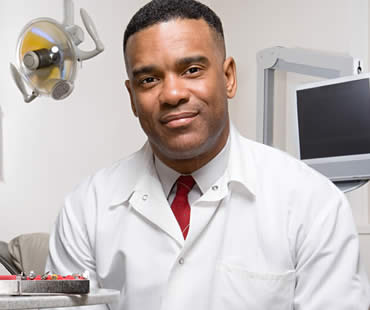
Mar 27, 2020
If you or a loved one is scheduled to have or has recently had oral surgery, you probably have a lot of questions. Here are some of the most common questions:
- One of my stitches came out after my surgery, should I be worried? Losing a stitch isn’t a problem. In the majority of cases, stitches are put in place during surgery to assist in clot formation and bleeding control. If you have undergone a bone-graft procedure, however, contact your surgeon because you may need to be seen immediately.
- What can I eat after surgery? Immediately following surgery, eat only soft foods of tepid temperature. Avoid very hot or very cold foods. Eat nothing that is crunchy or chewy so you won’t damage the surgical site.
- I am having a lot of pain following my procedure, what should I do? If you have been prescribed pain medication, take it as recommended. If no prescription was given, use over-the-counter medicines containing natural anti-inflammatory properties such as ibuprofen. Stay hydrated by drinking room temperature water and get plenty of rest.
- I had a tooth extracted, how can I tell if I have a dry socket? Dry socket is the result of the loss of the blood clot present in the extraction site. Smoking, using a straw, poor oral hygiene or failure to rest properly following the extraction procedure can lead to this condition. Typically dry socket will present within one week of extraction and is treated with sterile wash and pain-relieving, medicated gauze.
- I had a procedure this morning and am still bleeding. Is that normal? Bleeding following extractions or other surgical procedures is common. If you are bleeding more than normal, bite down on some sterile gauze or a damp teabag for twenty or thirty minutes. Don’t keep removing the gauze to look for blood; that can make the bleeding worse. Call your surgeon if you feel your bleeding is excessive.
Your oral surgeon can answer these questions and more. Don’t hesitate to call the surgeon’s office to get the peace of mind you require to heal comfortably following your procedure.
If you live in the Fall River area contact us today










